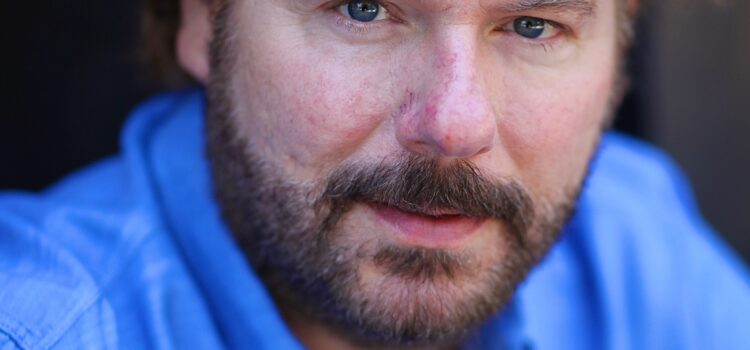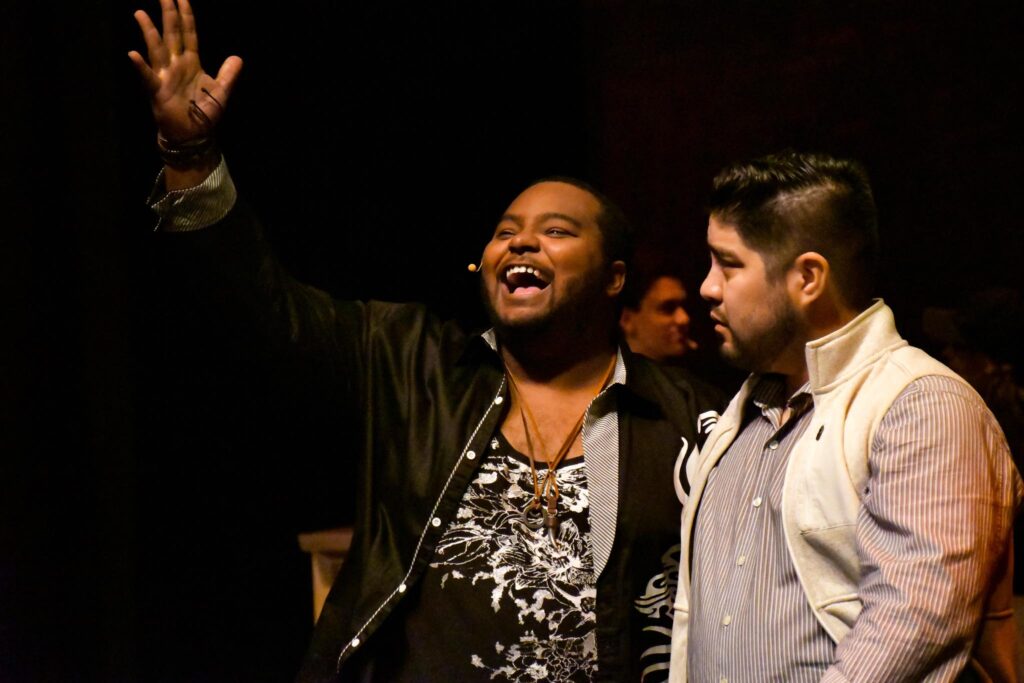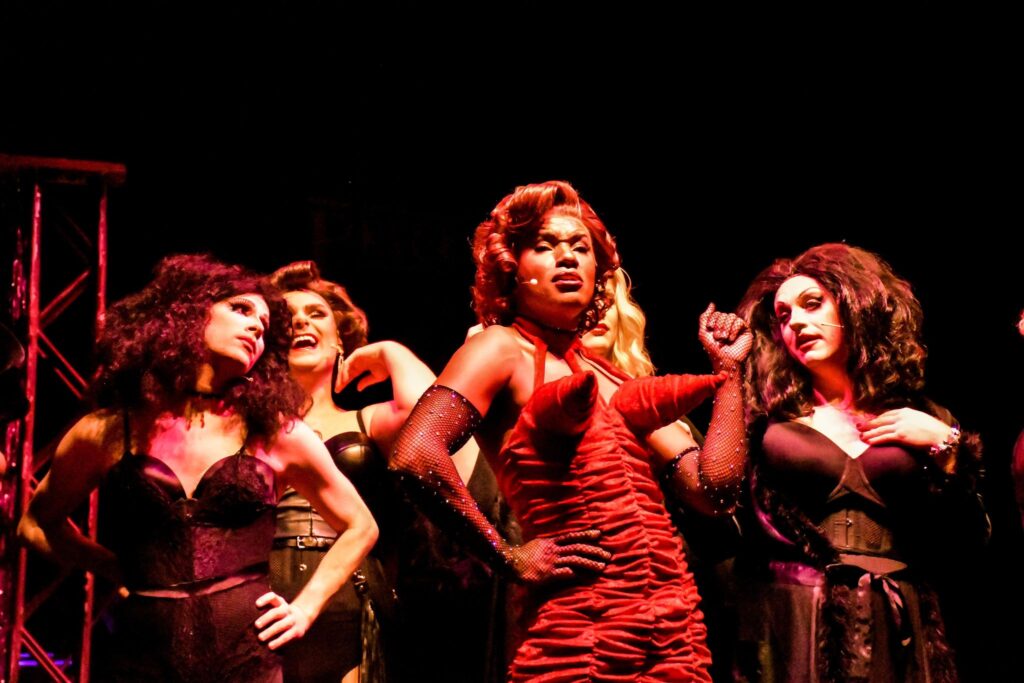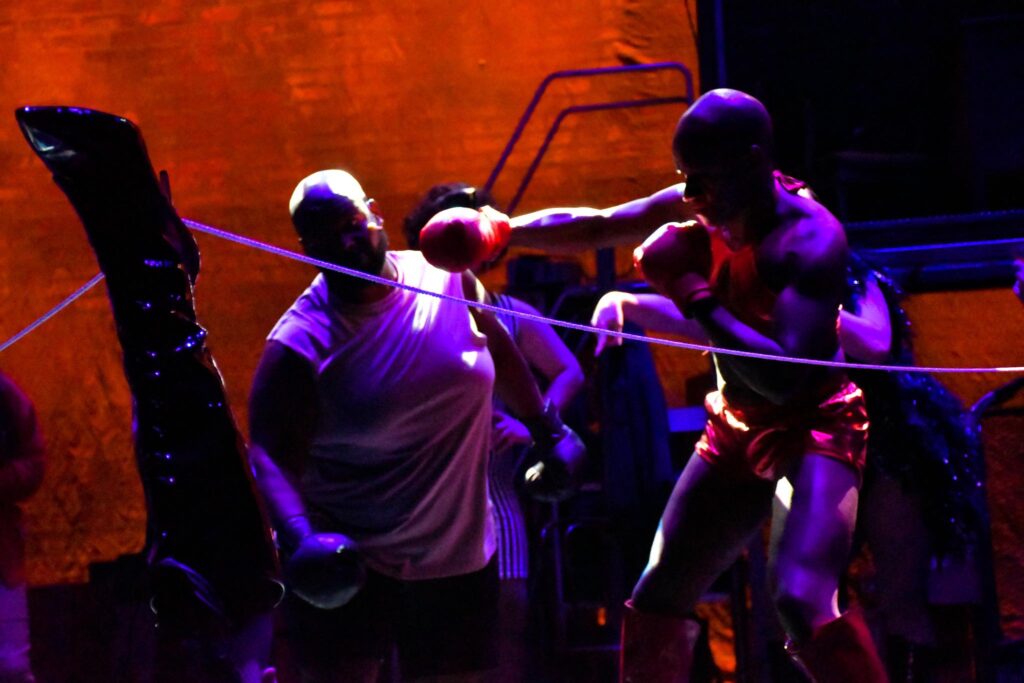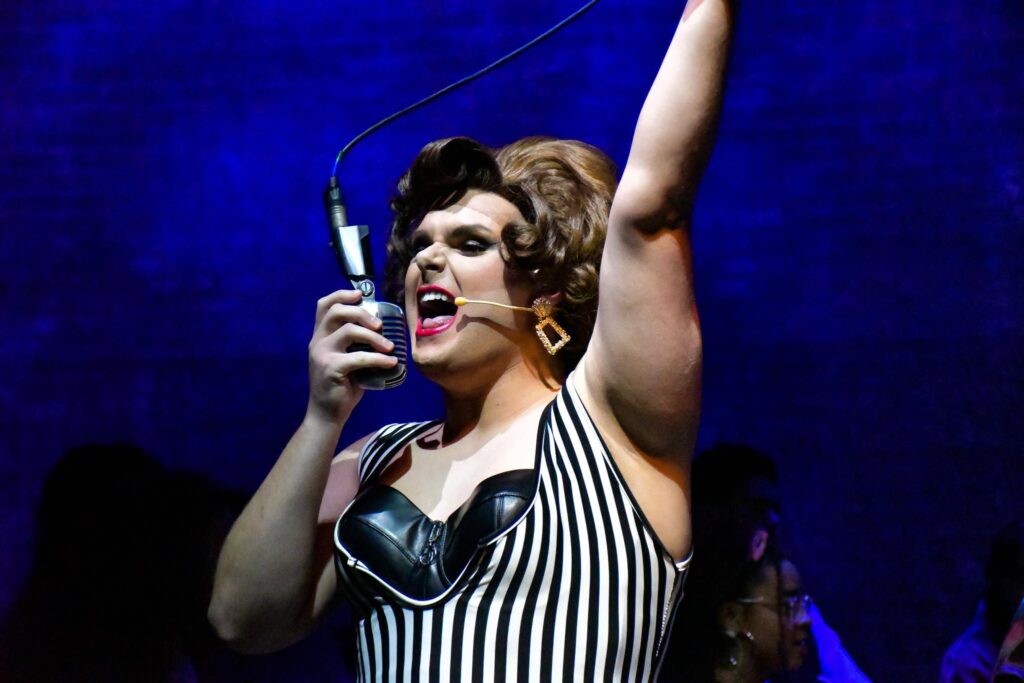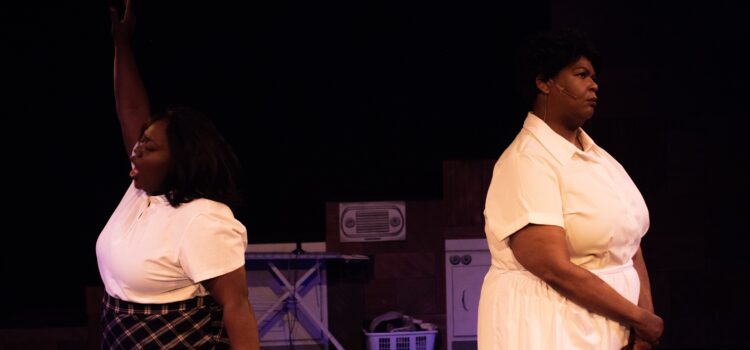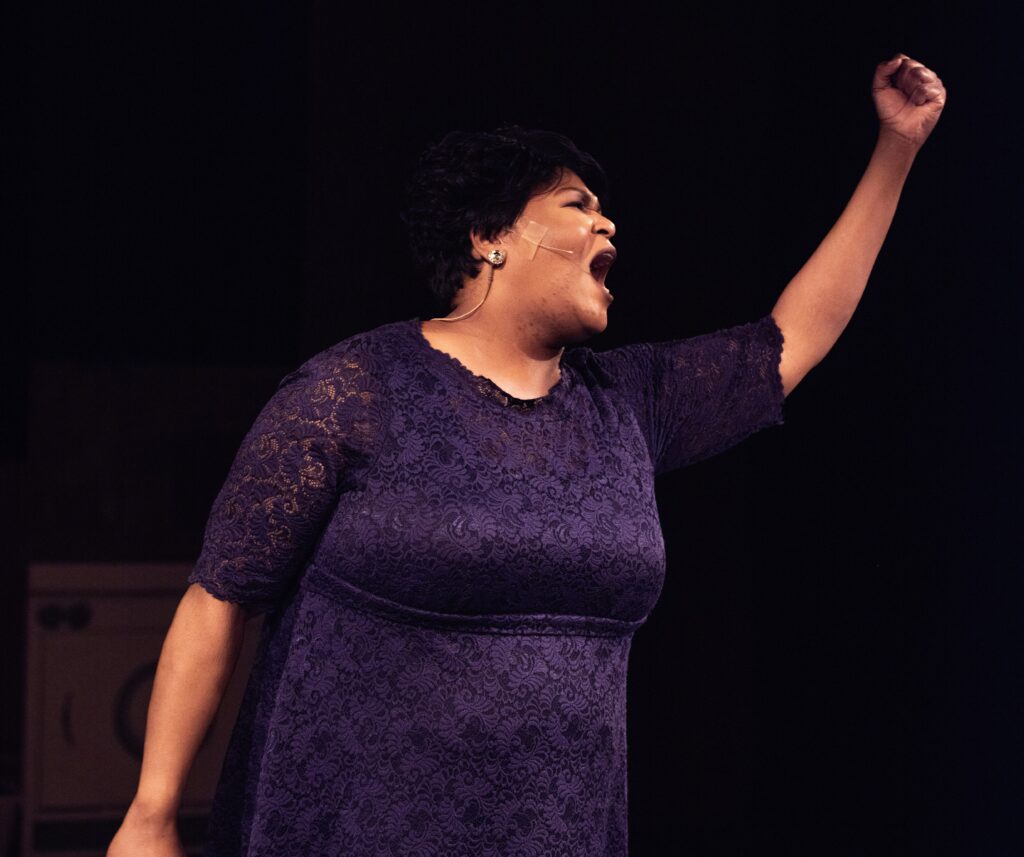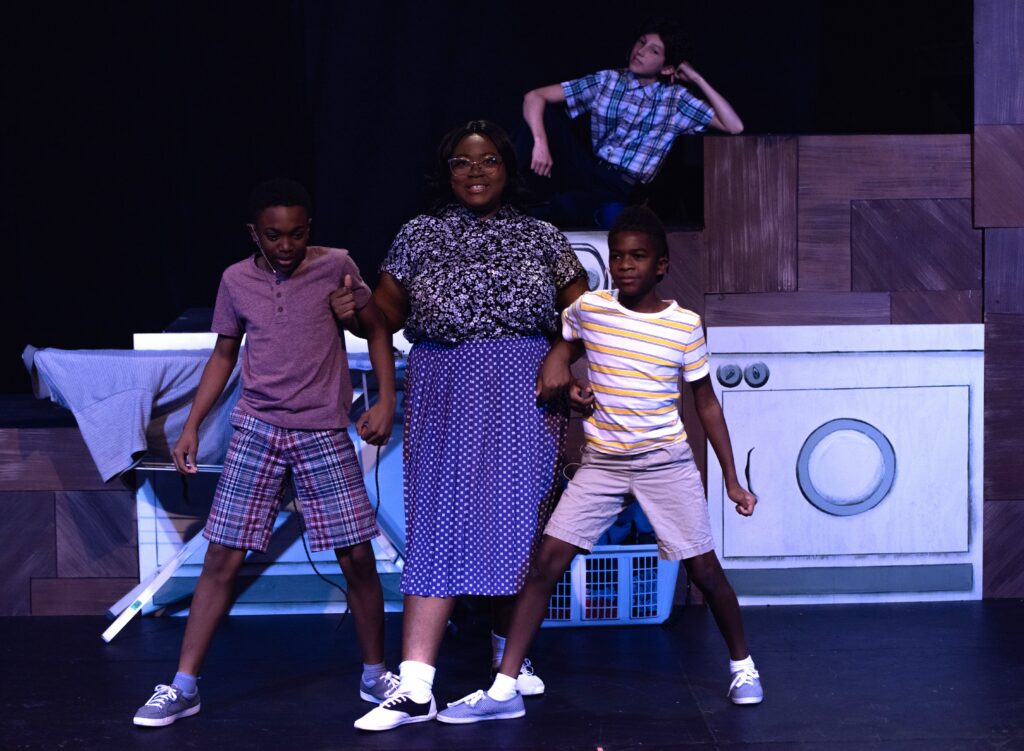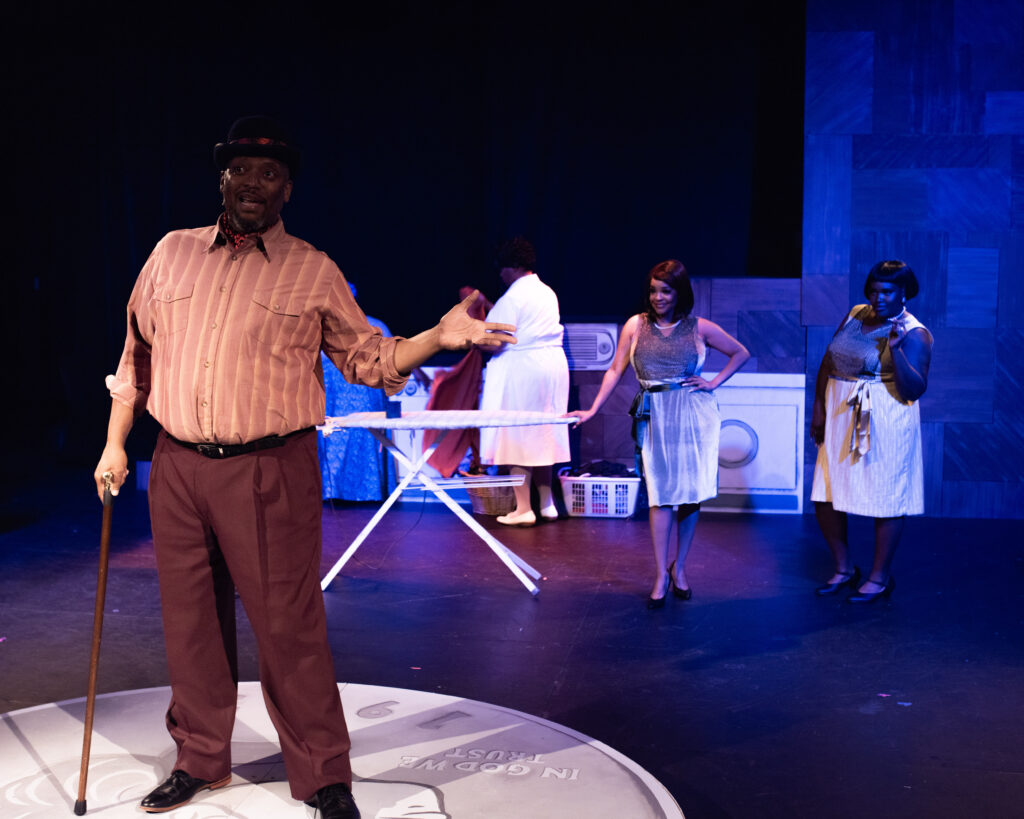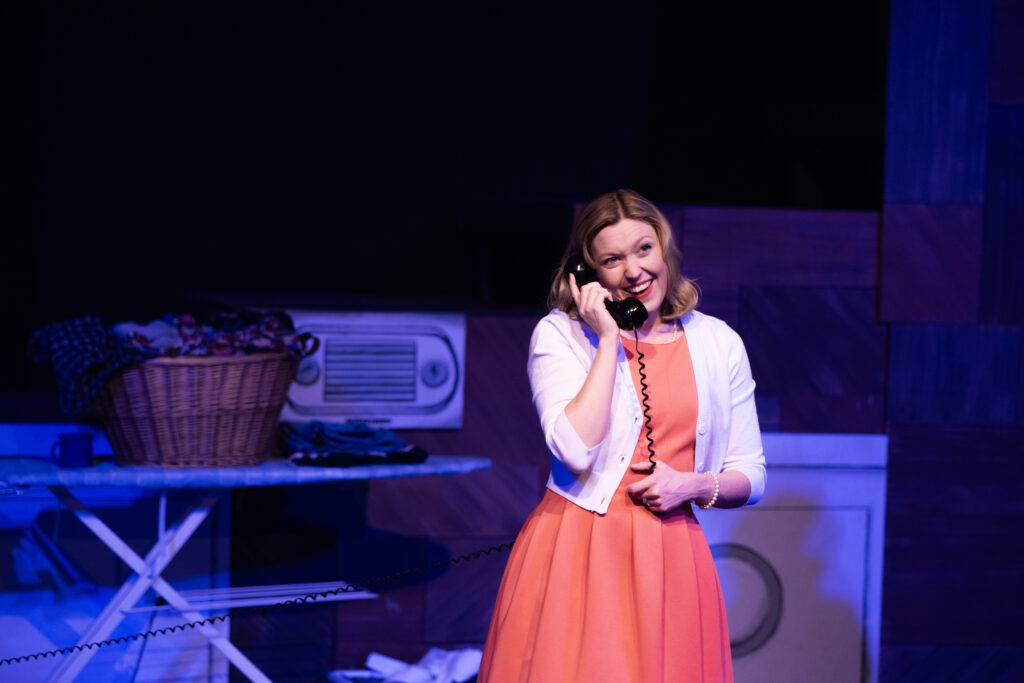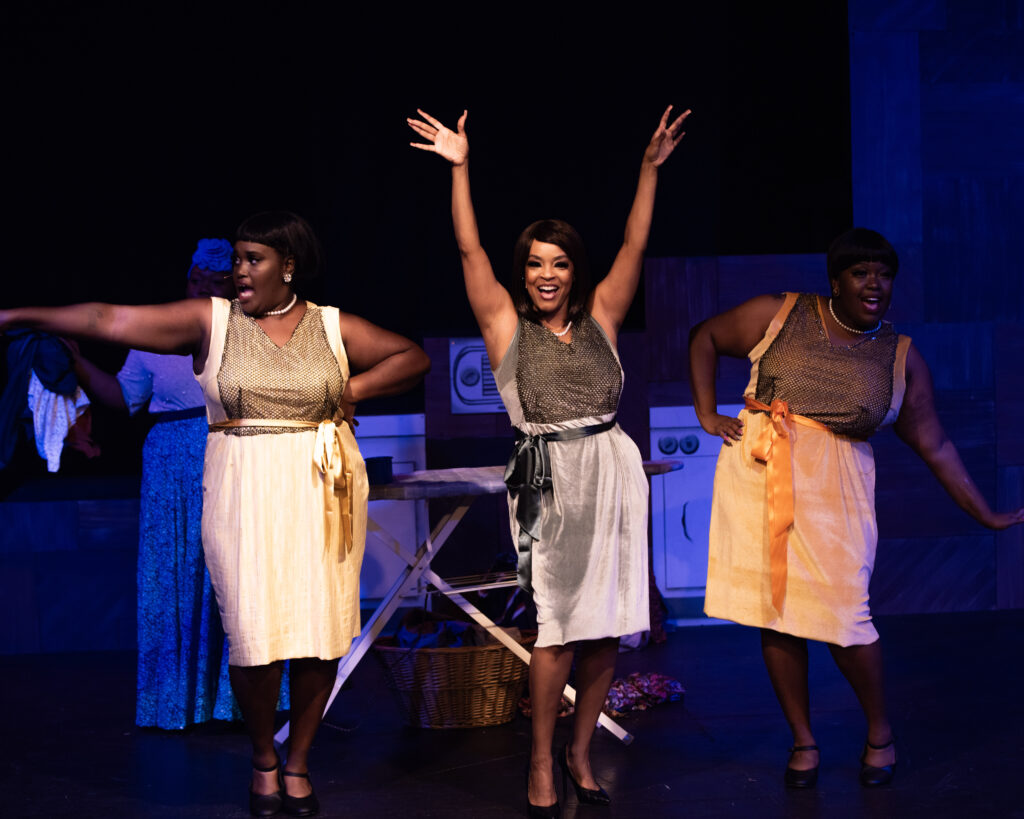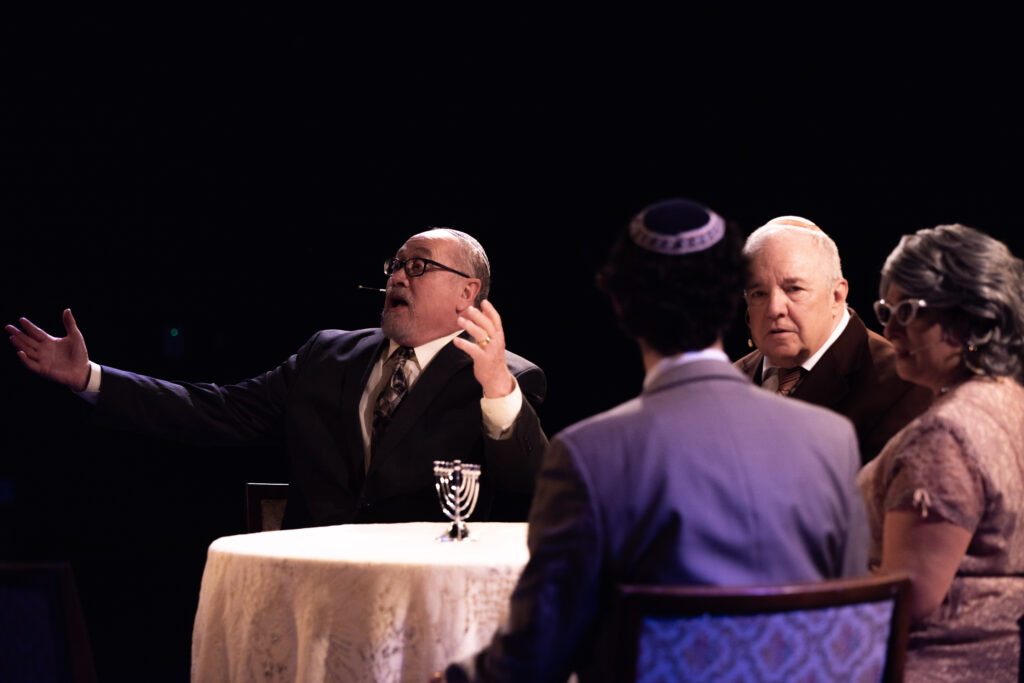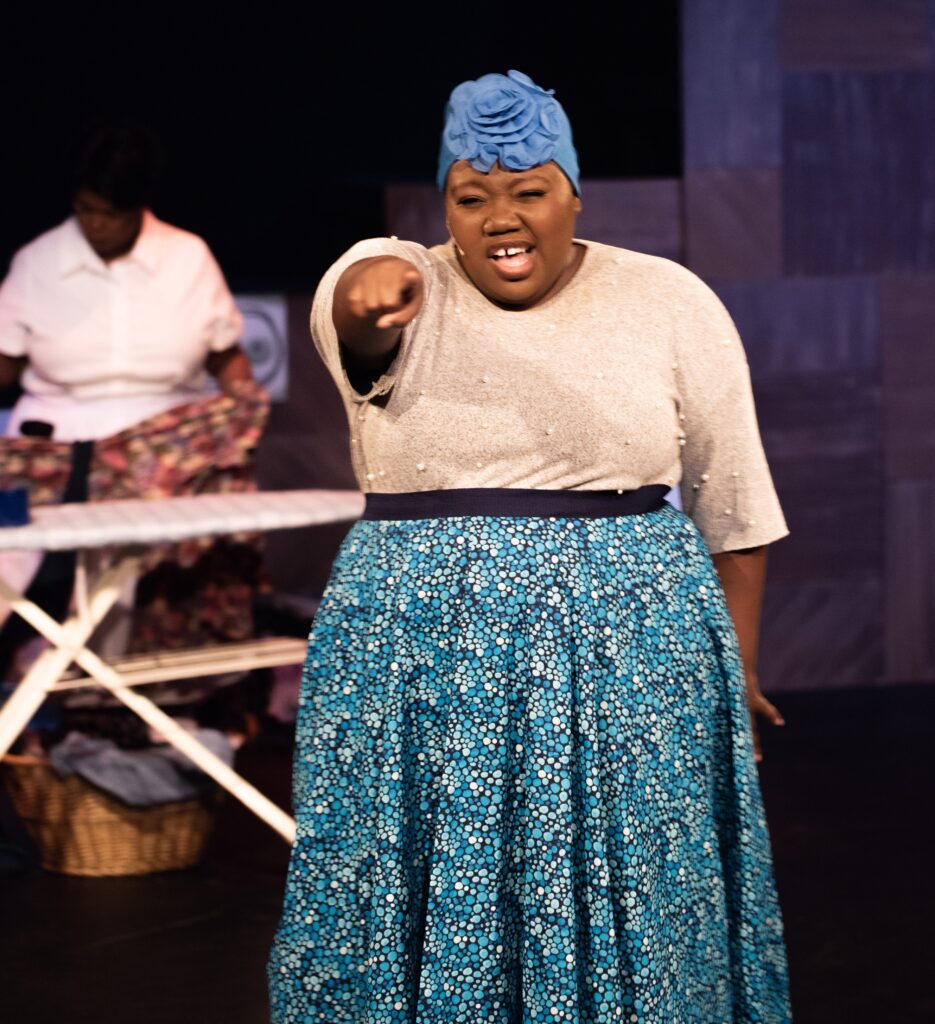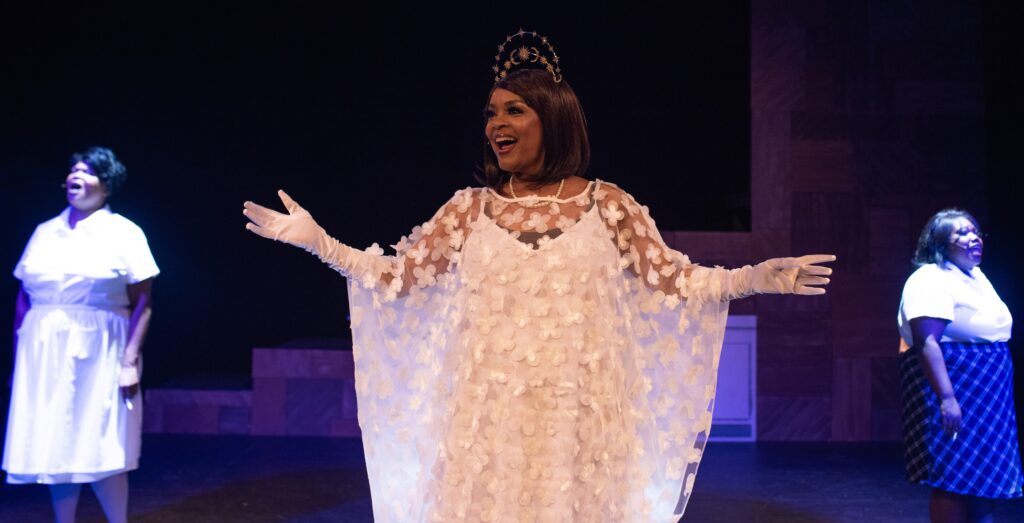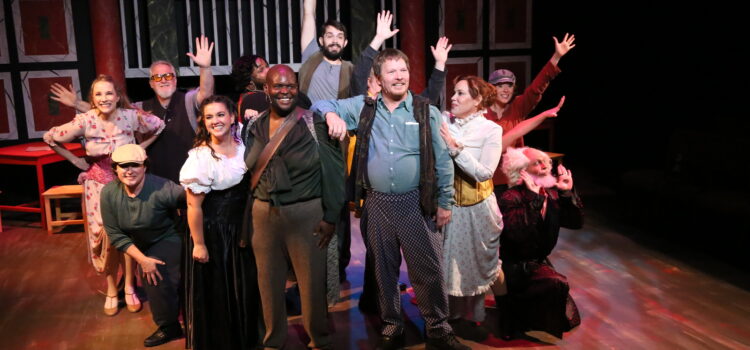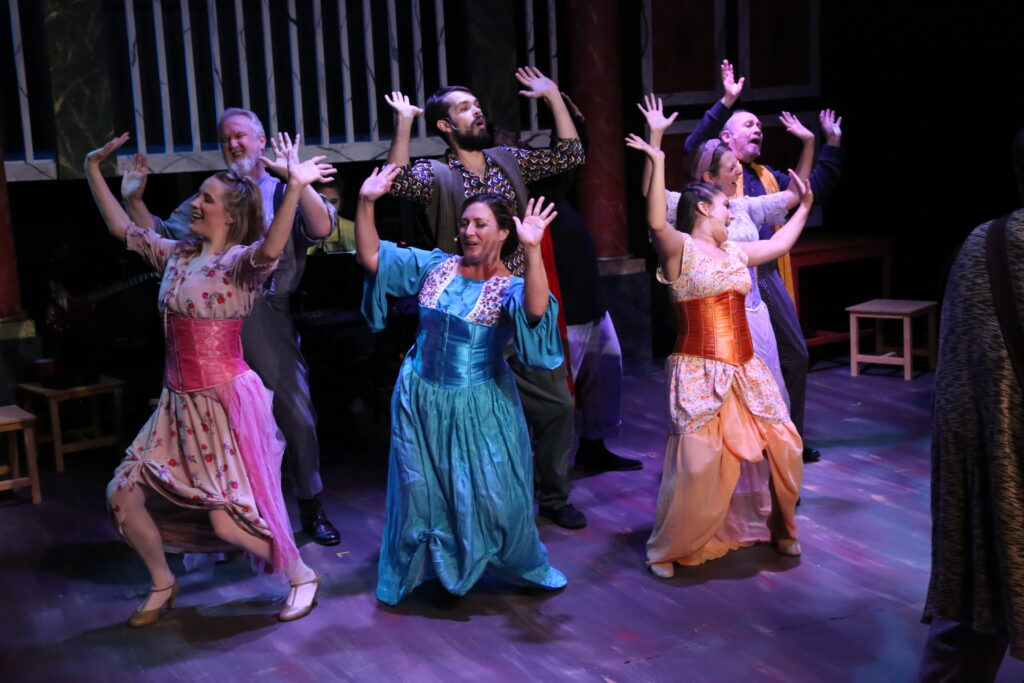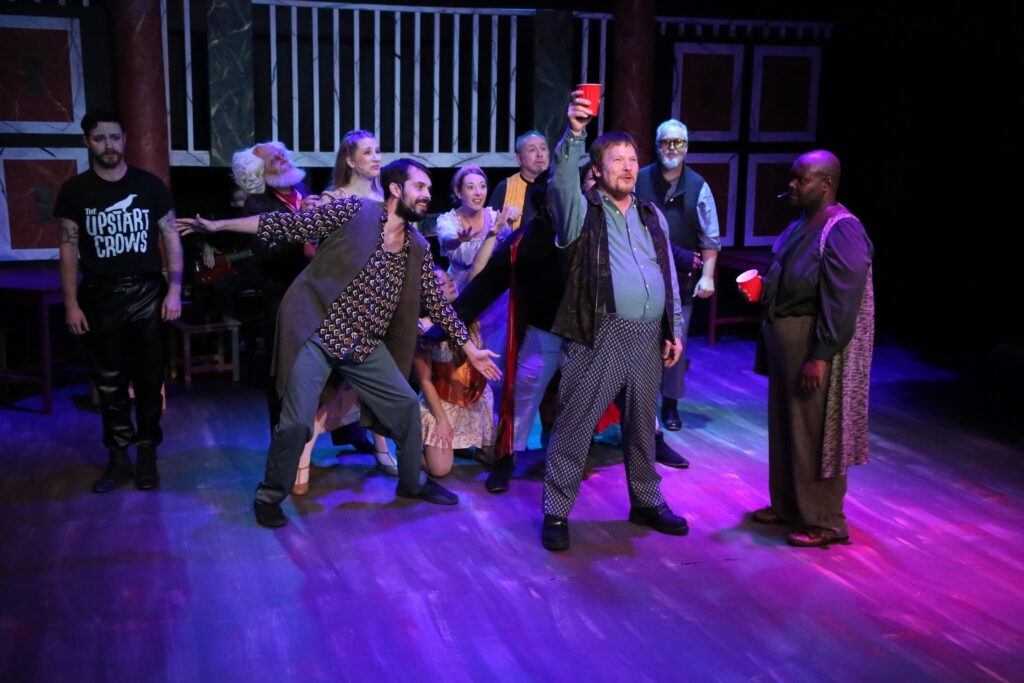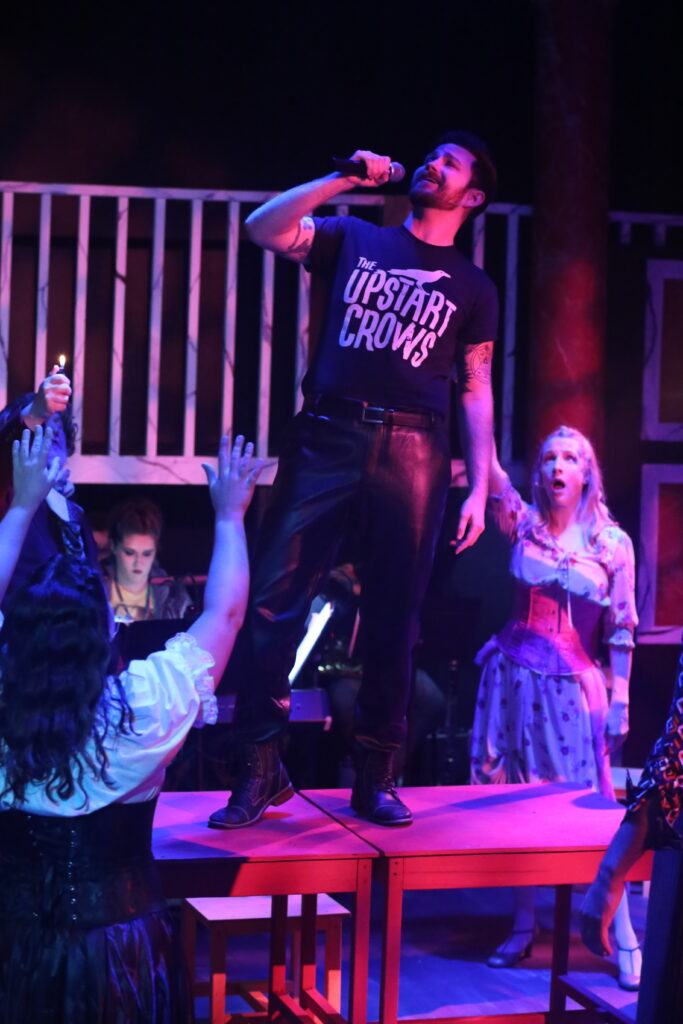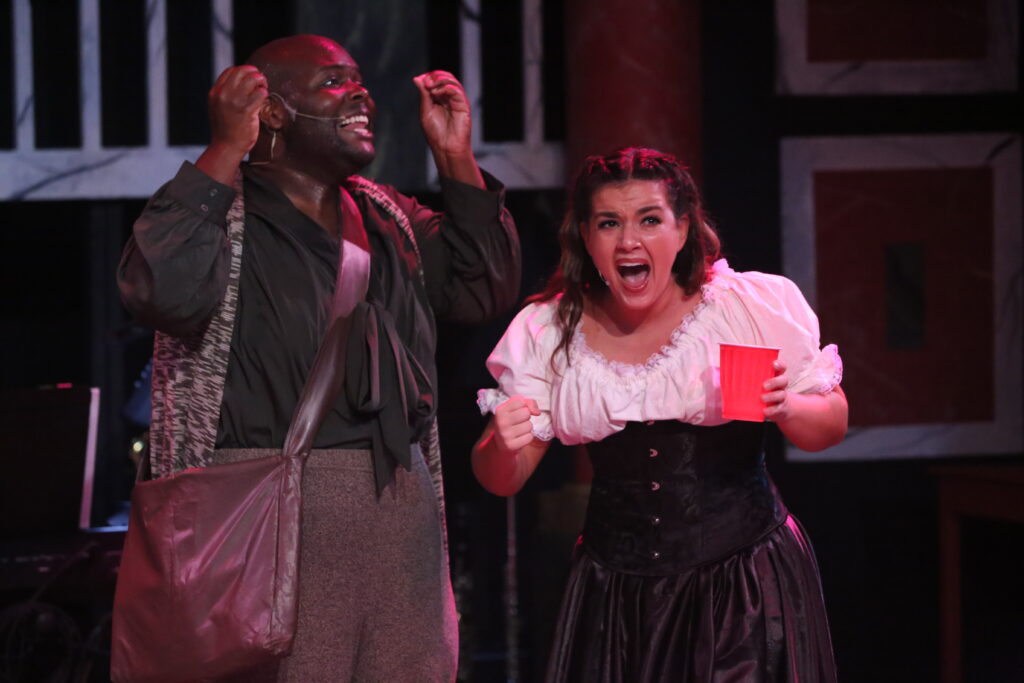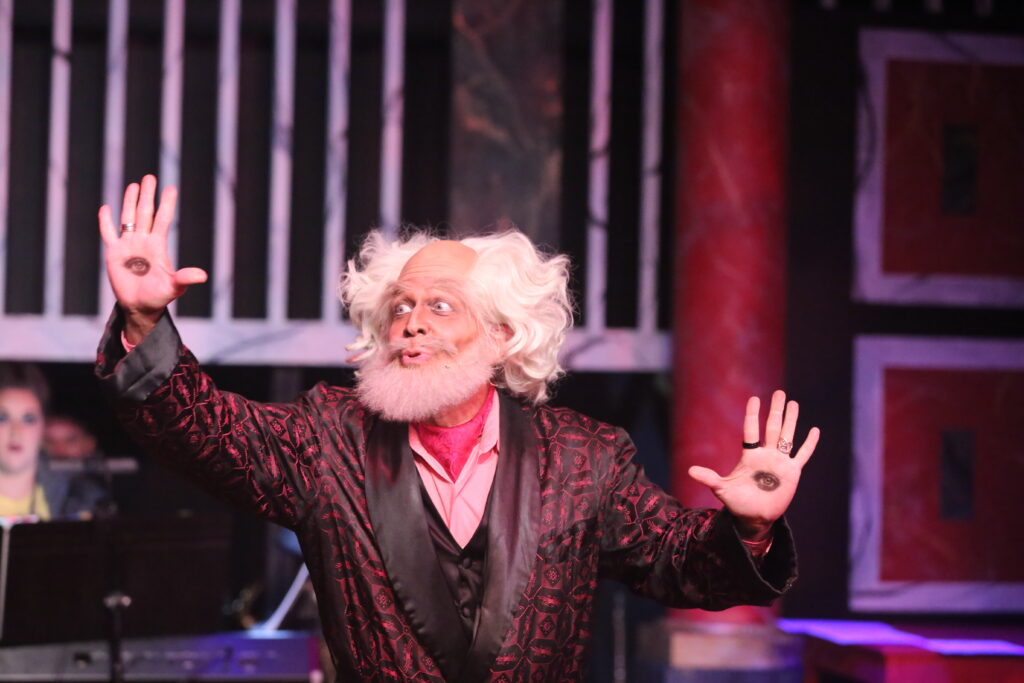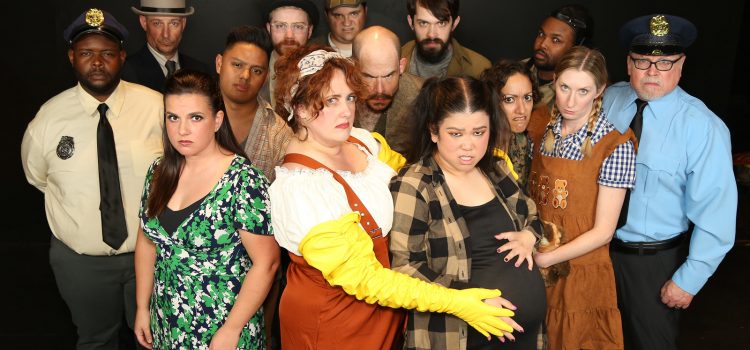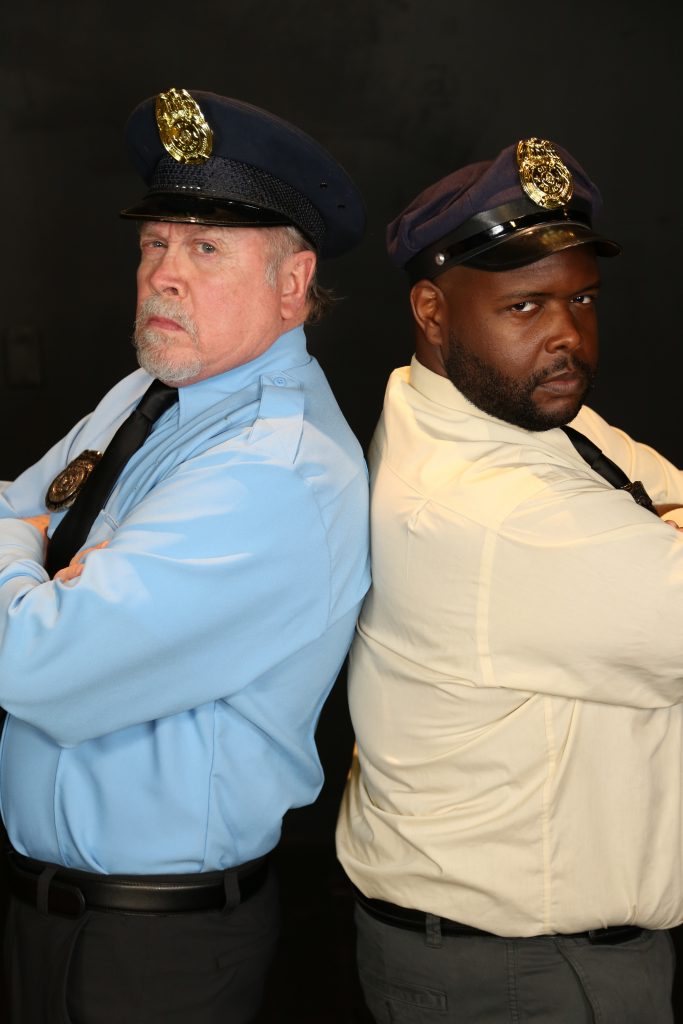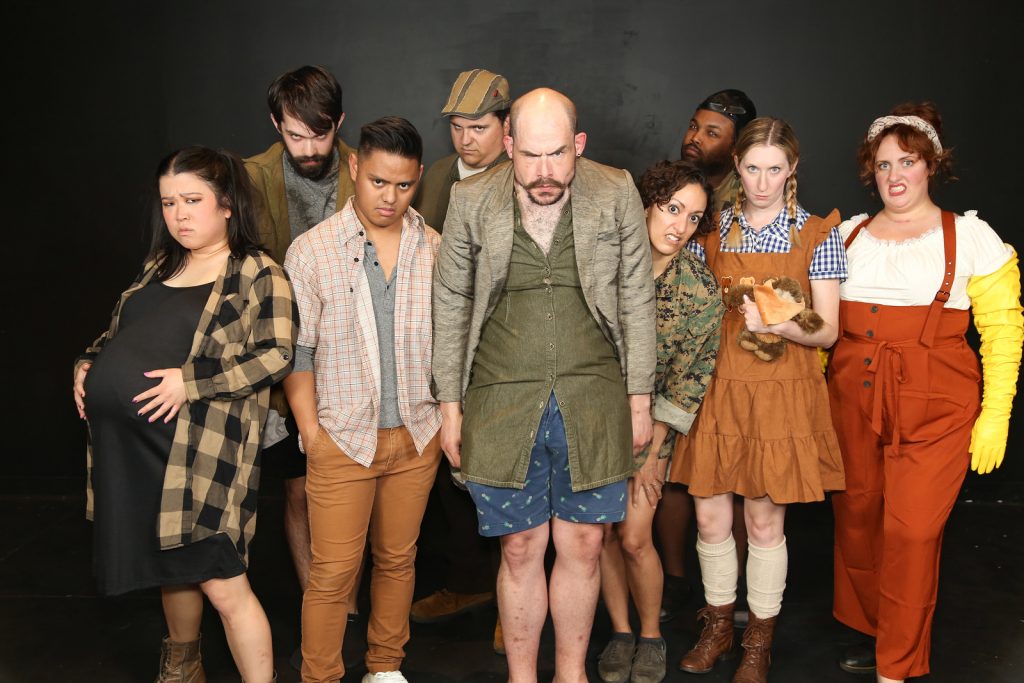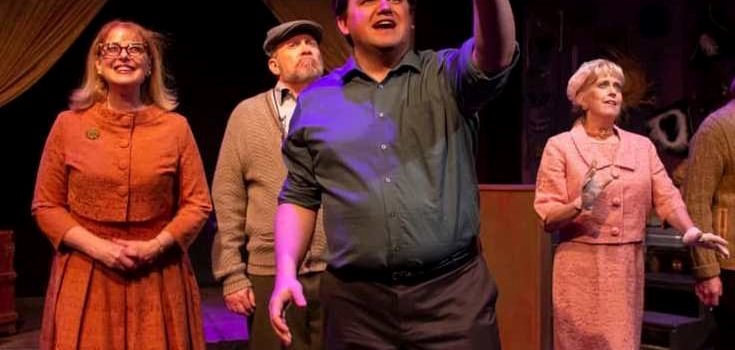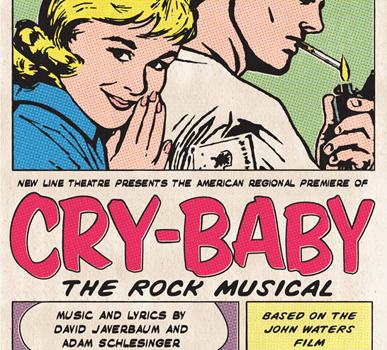By Lynn Venhaus
A longtime multi-hyphenate in St. Louis, actor, director and playwright Stephen Peirick’s latest challenge is a very personal and special experience for him, what he describes as a “dream opportunity.”
As director of the regional theater premiere of the Tony-winning “The Inheritance,” he said it’s not only an honor and privilege to be a part of the work, but described the production as an “embarrassment of riches” because of his “hands-down brilliant” cast.
Tesseract Theatre Company will present “The Inheritance, Parts 1 and 2” by Matthew Lopez April 26 to May 5 at the Marcelle Theatre in Grand Center. There is one day, May 4, where both parts will be presented. For more information, visit www.tesseracttheatre.com and tickets are available at MetroTix.
Peirick is working with Tesseract for the first time. Taylor Gruenloh, former founder and artistic director, said he first thought of Stephen while reading the play, and locked him in to make it happen.
“As soon as I read that play, it reminded me of all the work Stephen was doing in town. And knowing how passionate he is about this kind of subject matter made it important to know he was at the helm before the rights were secured,” Gruenloh said.
The Daily Telegraph said it was “perhaps the most important American play of this century.” The play is based on “Howard’s End” by E.M. Forster and takes place in New York City decades after the AIDS epidemic, as three generations of gay men attempt to forge a future for themselves amid turbulent and changing America.
“This play doesn’t deny the pain of our experience.. it allows people to remember how we have gotten this far, what it’s like to fight, and who we have lost along the way. That sometimes our best weapon is our sense of humor, is our wit, is our intelligence, and is the love we have for each other,” said playwright Matthew Lopez.
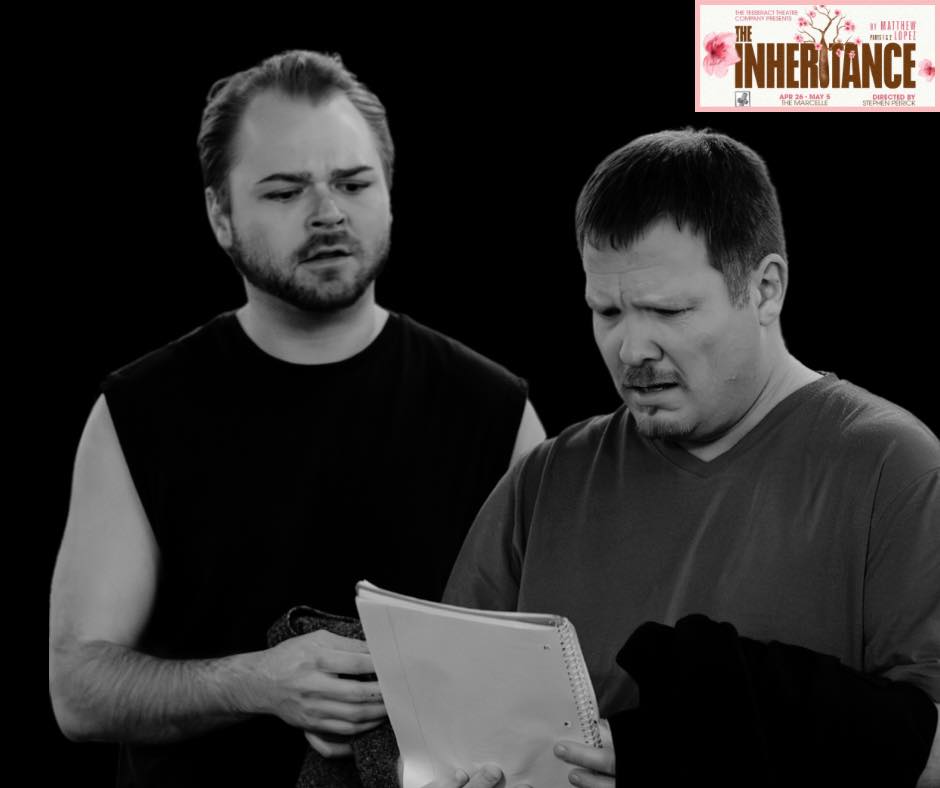
Eric Glass (Chris Kernan) is a political activist engaged to his writer boyfriend, Toby Darling (Gabriel Paul). When two strangers enter their lives — an older man and a younger one — their futures suddenly become uncertain as they begin to chart divergent paths. This is an epic examination of survival, healing, class divide, and what it means to call a place home.
Besides Kernan and Paul, “The Inheritance” cast includes Tyson Cole, Stephen Henley, Jon Hey, Donald Kidd, Alex Moore, Kevin O’Brien, Jacob Schmidt, Sean Seifert, Nic Tayborn, Kelvin Urday, and Margery Handy. Assistant Director is Dani Mann.
Among its accolades, “The Inheritance” won the 2020 Tony Award for Best Play., the 2020 Drama Desk Award for Best Play and the 2019 Olivier Award for Best Play.
This production is for mature audiences. May contain mature themes, language, nudity, sexuality, violence, satire and/or progressive ideas.
Peirick has been working with Stray Dog Theatre for years, and has performed and directed at West End Players Guild and performed with Union Avenue Opera in “Lost in the Stars.” He also works with Take Two Productions, a community theatre.
He is known for writing original plays as well, and has received nominations for Best New Play from the St. Louis Theater Circle for “Wake Up, Cameron Dobbs” and “Four Sugars.”
Last year, the Circle nominated him for his performance as Ned Weeks in “The Normal Heart” and several years ago for “The Doll’s House.”
He has also been nominated for the local community theatre Arts for Life awards for directing, lighting design, choreography and scenic design — winning the latter for Fun Home with Take Two Productions.
Next up is directing “Merrily We Roll Along” for Take Two Productions, which will be presented in September and October.
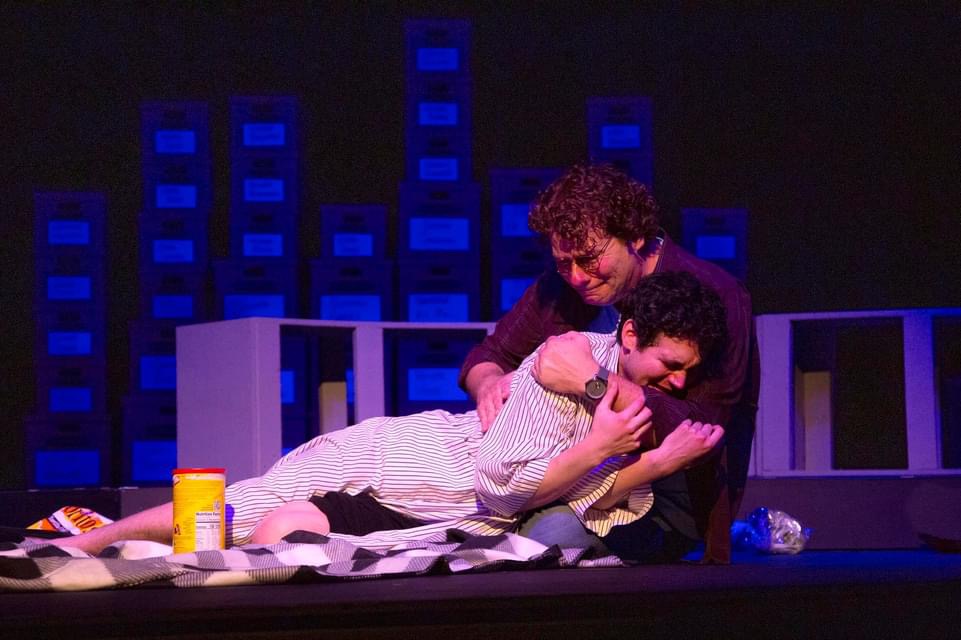
Take Ten Questionnaire with Stephen Peirick
1. What is special about your latest project?
Larry Kramer masterfully wrote the brilliant play The Normal Heart, which detailed his experiences fighting for the gay community during the AIDS crisis in the 1980s. When I first saw Kramer’s play in 2011, it amplified a history I had been almost entirely ignorant of. It was a humbling moment as a gay man: an embarrassing privilege of my age. Kramer’s play inspired me to want to share this history with the world, and in particularly with the next generation of queer youth.
Our history is important. We are important. Matthew Lopez’s first-rate epic The Inheritance goes one step further, by asking audiences to ponder not only what we owe the generation who came before us, but what will we leave behind for the generation to come?
It’s not often that you get asked about your interest in directing a two-part epic – this has been a dream opportunity. It has been my incredible honor and privilege to direct the St. Louis premiere of this Tony-Award winning play.
And then, on top of it, to get to work with a hands-down brilliant local cast (Tyson Cole, Nic Tayborn, Sean Seifert, Jacob Schmidt, Stephen Henley, Donald Kidd, Kevin O’Brien, Kelvin Urday, Chris Kernan, Gabriel Paul, Alex C. Moore, Jon Hey, and Margery Handy) and an exceptional behind the scenes team (Dani Mann, Rachel Downing, Amanda Brasher, Abby Pastorello, Tony Anselmo, Jacob Baxley, Sarah Baucom, Kent Coffel, Kevin Sallwasser, as well as Tesseract’s Creative Directors Brittanie Gunn and Kevin Corpuz): this show has been an embarrassment of riches for a director. A special experience, for sure.
2. Why did you choose your profession/pursue the arts?
Because I can’t NOT pursue it. (I would be so much more well-rested if I just stay away!) At the end of the day, I’m a storyteller trying to get better at this craft. Whether I’m directing, acting, or writing…I have a passion for creating, and no matter how tired I get, I keep going back for more.
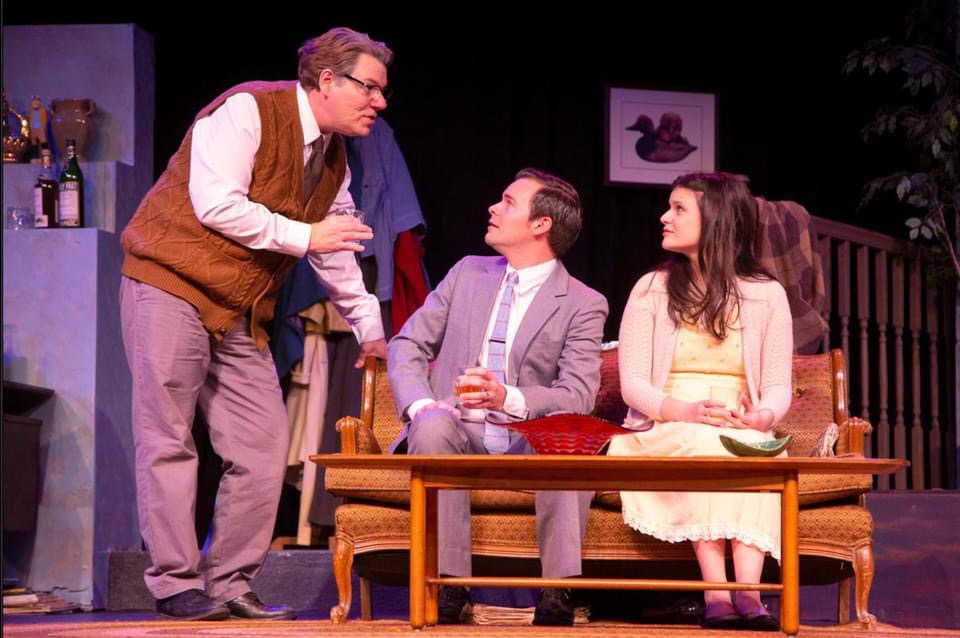
3. How would your friends describe you?
First and foremost, I think they’d say I was hot. And also, probably…hilarious. Okay; maybe they wouldn’t say either of those things unprovoked…or at all. But in my mind, those are the two compliments they are always ABOUT to share with me…before they get distracted by something else and forget .
4. How do you like to spend your spare time?
What is that? Spare time? Alas…should I ever find it again, I’d love to get back to writing.
5. What is your current obsession?
The Inheritance. I literally have no time for anything else. But once the show has come and gone, I love to spend summers outside…I love lounging in a pool, and enjoying R & R time. I love to find and read new plays, and I’m always on the lookout for some good Halloween décor. I track what’s playing in NYC, both on Broadway and Off…and I love reality television, or binding scripted shows.
6. What would people be surprised to find out about you?
If I told you, it wouldn’t be a surprise.
7. Can you share one of your most defining moments in life?
Seeing my sister’s high school production of The Diary of Anne Frank when I was six or seven. It ignited in me my love for live theatre. When I look back on my life, I think it was the very beginning moment of this whole journey.
8. Who do you admire most?
My mom was, no doubt, the most influential person on me. She passed away nearly 10 years ago, and I miss her everyday, and I can’t help but wonder what she would think of the work I’ve done over these years.
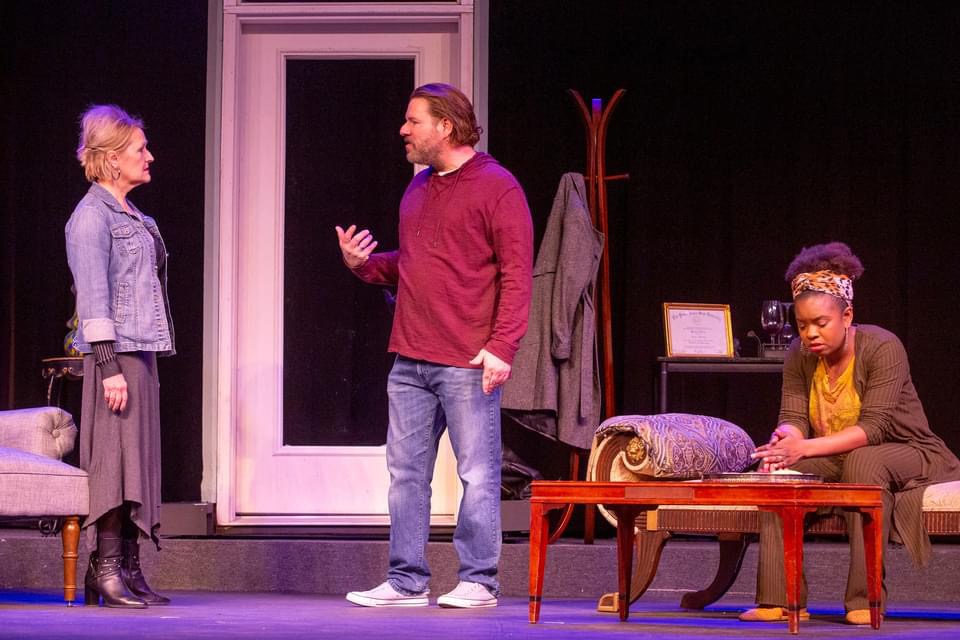
9. How were you affected by the pandemic years, and anything you would like to share about what got you through and any lesson learned during the isolation periods? Any reflections on how the arts were affected? And what it means to move forward?
I was just getting ready to return to the stage as an actor (after having taken a year off) when the pandemic hit. Like for everyone else, it caused so much disruption to projects I had in the pipeline. Most of them still got to happen, although after a long delay, including directing Fun Home with Take Two Productions, and playing Mike in Good People and Ned in The Normal Heart for Stay Dog Theatre.
The Normal Heart was my dream project, and had been since 2011, so the fear that it would never get to happen, and that the arts might never recover was real.
I think it’s important to go see and support live theatre as one’s schedule (and wallet) allows. Volunteer to usher, and post to the socials when you go see work. Help your friends and family see that it is safe to return to the theatre, and that good things are happening. (And masks are still welcome in any theatre you might want that added layer of protection.)
10. What is your favorite thing to do in St. Louis? (Or your hometown)
I love to be immersed in our local arts scene as much as possible. This month alone, I saw productions with Stray Dog Theatre, The Rep, Clayton Community Theatre, and St. Louis Shakespeare. I love hitting up restaurants (The Tavern is a favorite for special occasions), and spending time with friends and family.
12. What’s next?
Next up, I am directing the musical Merrily We Roll Along for Take Two Players. This dynamic and rarely produced musical is currently having an incredible run on Broadway. Running for two weekends in September and October, our cast features an incredible group of local talent, including Ryan Farmer, Grace Langford, and Michael Baird in the central roles of Frank, Mary and Charlie. www.taketwoproductions.org
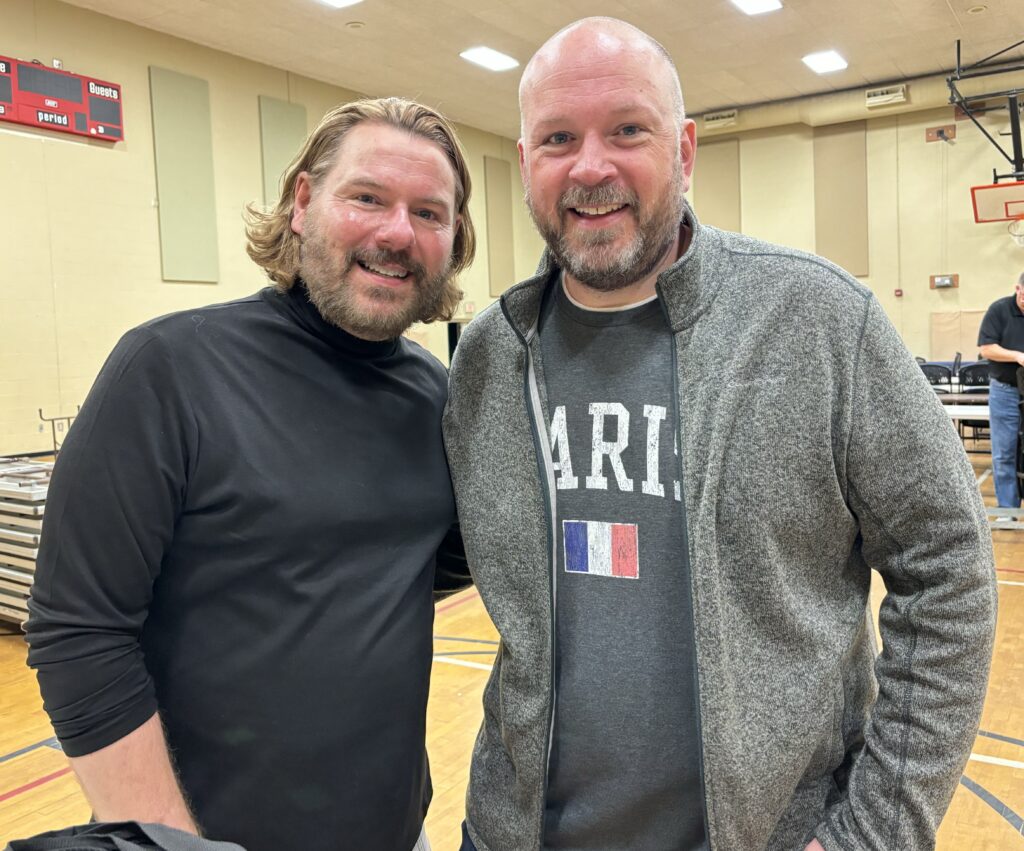
More Information on Stephen Peirick
Birthplace: Franklin County, MO
Current location: St. Louis
Family: I am married to the incredible Jon Hey, and we have three cats: Kona, Poppy and George. I have four older sisters, three nephews, two nieces, two great nephews and two great nieces.
Education: BA in Communications/Theatre with a minor in Education
Day job: I have spent the last 15+ years working for a state association. I create our online newsletters, content for our socials, etc., and appreciate working for an organization that understands and supports my passion for the arts.
First job: I was a Ticket Taker at Six Flags when I was 15 years old.
First play or movie you were involved in or made: The first real, non-grade school Christmas play I did was a courtroom drama called The Night of January 16 when I was a freshman in high school.
Favorite jobs/roles/plays or work in your medium? Playing Ned Weeks in The Normal Heart at Stray Dog Theatre was such a dream; and seeing the premiere of my first, full-length play (in 2012 at West End Players Guild) Wake Up, Cameron Dobbs is something that I will never forget.
Dream job/opportunity: Taking Wake Up, Cameron Dobbs to New York maybe?
Awards/Honors/Achievements: I have been nominated for four St. Louis Theatre Circle Awards; two for acting (The Normal Heart and A Doll’s House) and two for writing (Wake Up, Cameron Dobbs and Four Sugars). I have also been nominated for our local, community theatre Arts for Life awards for directing, lighting design, choreography and scenic design (winning the latter for Fun Home with Take Two Productions).
Favorite quote/words to live by: Tell your story bravely. It’s a story worth telling.” – Morgan, The Inheritance
A song that makes you happy: I love 80s music. Here I Go Again by Whitesnake is a fave.
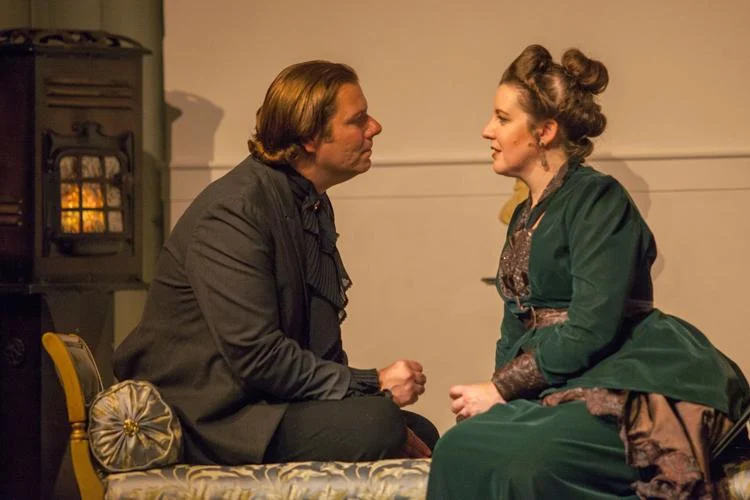


Lynn (Zipfel) Venhaus has had a continuous byline in St. Louis metro region publications since 1978. She writes features and news for Belleville News-Democrat and contributes to St. Louis magazine and other publications.
She is a Rotten Tomatoes-approved film critic, currently reviews films for Webster-Kirkwood Times and KTRS Radio, covers entertainment for PopLifeSTL.com and co-hosts podcast PopLifeSTL.com…Presents.
She is a member of Critics Choice Association, where she serves on the women’s and marketing committees; Alliance of Women Film Journalists; and on the board of the St. Louis Film Critics Association. She is a founding and board member of the St. Louis Theater Circle.
She is retired from teaching journalism/media as an adjunct college instructor.

